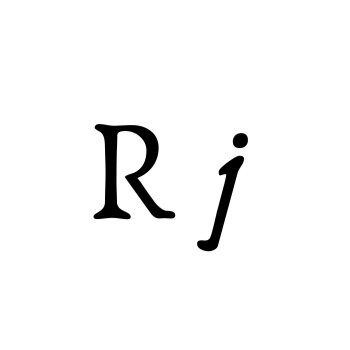Balancing Tradition and Innovation: Global Women’s Healthcare with Dr. Anusha Rao P.
In this interview, we explore critical topics shaping women's healthcare globally today, guided by the expertise of Dr. Anusha Rao, MBBS, MS, FMAS, MRCOG, a consultant gynecologist and laparoscopic surgeon based in India. We examine the comparative advantages of healthcare systems in India and the United States, with a focus on how each addresses the health needs of women. We also discuss the impact of cultural beliefs on women's health decisions, the evolution and benefits of minimally invasive gynecological surgeries, and strategies to address non-communicable diseases affecting women.
The Reappeared Archive: An Employee’s Letter, Athens State Hospital, 1945
The Reappeared Archive is where we bring lost texts back into the light — voices silenced by time, stigma, or circumstance. In keeping with our mission to explore the intersections of literature, trauma, and healing, this series resurrects writings that wrestle with embodiment, illness, recovery, or the search for meaning in the midst of pain.
These are not always published authors. Sometimes they are anonymous. Sometimes their words were never meant to be seen. And yet — they speak to us, across time.
Being Hunted while Being the Hunter: Life with PTSD
As someone diagnosed with PTSD, I am constantly hunted: by memories, flashbacks, nightmares.
PTSD, or post-traumatic stress disorder, is the consequence of the exposure to traumatic situations that irremediably change one’s mind, body, and life experience. Officially included in the DSM (The Diagnostic and Statistical Manual of Mental Disorders) since 1980, it has found its rightful place among recognized mental health conditions.
Dad’s Driving is Driving Me Crazy: Don’t Forget to Check Your Blind Spot
Author Gary Moak, M.D. writes a brief essay about unsafe older drivers, a major theme of his story set to be published soon in Issue 8.
TEACHING CREATIVE WRITING WITH TRAUMA SURVIVORS
Ultimately, all creative writing teaching is about “the why, the how and the reflection” and clarifying these objectives is particularly important when working with trauma survivors. It is important that we always have in mind our audience and why we are addressing that particular audience. We then have to ponder how best to organize and deliver to that audience. Finally, we have to reflect on our work and perhaps evaluate. In some cases, this means the dread of marking- which is a difficult task and often this writer, in particular, prefers only to mark in broad bands.
humanitarian Legacies: Dr. Harvey Cushing & Dr. Louise Eisenhardt
Dr. Harvey Cushing, often dubbed the father of neurosurgery, seamlessly melded together the trifecta of practice, research, and teaching with the assistance of his collaborator, Louise Eisenhardt. His academic pedigree begins with earning his bachelor's degree at Yale University in 1891, completing his MD from Harvard Medical School in 1895, and undergoing surgical training at Johns Hopkins University. Having worked with hundreds of patients yearly as the surgeon-in-chief at Peter Brent Brigham Hospital (now Brigham and Women’s Hospital), his meticulous documentation of each patient and surgery never seemed to have faltered.
Writings from a Bipolar Mind
I will make several points on how I survive ‘the illness’ (Bipolar Disorder). The first point is that I gave up hope on my condition until a pen and paper were given to me to write what I was thinking. The second is, how I turned sorrow into hope through the written words on paper, and finally, I want to discuss why it is important to me to write every day. Now let us begin the journey into my mind, do not worry; the lights are on.
editor’s book pick: the empathy exams
"The Empathy Exams" by Leslie Jamison delves into the complexities of empathy, offering valuable insights and a profound understanding of the human experience for chronically ill patients. The book is introduced with the author’s work as a medical actor, helping train medical students in both making accurate diagnoses and communicating with patients in a professional manner.
Conscientious Objection with Sarah Hull, MD
Being a physician is a privilege, not a right—according to Dr. Sarah Hull, this is a central consideration regarding ethical clinical care. While there are cases in which physicians are justified in their rights to refuse to provide certain types of treatment, their professional duties undoubtedly include thoughtful consideration for patient well-being. Consequently, simply refusing to provide care to patients, or plain objection, is not analogous to conscientious objection.
Mental Health & Native American Heritage Month
Unfortunately, there is a very strong stigma against receiving mental healthcare within the Native American community, making it challenging for individuals to get the help they need.
It's On Me
A heartwarming narrative of hope shining over the difficulties posed by pharmaceutical costs
The Anniversary Of The American Disabilities Act
This past Tuesday, July 26th, marked the 32nd anniversary of the Americans with Disabilities Act (ADA).
Men’s health week
June 13-19 was International Men’s Health Week this year! In an effort to increase awareness and reduce the stigma around male health issues, including physical, mental, and emotional wellbeing, hundreds of organizations around the world are coming together to offer support.
Disability, Shame, and Cultural Perception
A touching personal narrative evaluating learnings after a diagnosis with Ehlers Danlos Syndrome.
